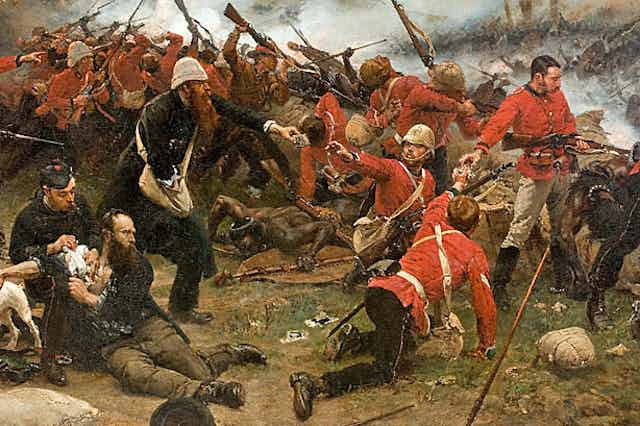
Introduction:
The British Empire, once the largest empire in history, left an indelible mark on the world, shaping societies, economies, and cultures across continents. In this historical exploration, we delve into the rise, expansion, and eventual decline of the British Empire – a complex narrative of conquest, colonization, and the quest for global dominance.
1. Origins and Early Expansion:
The roots of the British Empire can be traced back to the Age of Exploration in the 16th century. England's maritime ambitions led to voyages of discovery and trade, with figures like Sir Walter Raleigh and Sir Francis Drake setting the stage for overseas expansion. The establishment of the East India Company in 1600 marked the beginning of British involvement in India and the East.
2. The Colonial Era:
The 17th and 18th centuries saw the British Empire expanding its colonial holdings in the Americas, Africa, and Asia. The Thirteen Colonies in North America, the Caribbean sugar colonies, and strategic outposts in India became crucial components of the empire. The Seven Years' War (1756–1763) solidified British dominance in North America and India but also laid the groundwork for future conflicts.
3. The Industrial Revolution and Imperial Expansion:
The 19th century witnessed the profound impact of the Industrial Revolution on the British Empire. Technological advancements, coupled with economic changes, fueled imperial expansion. The quest for raw materials and new markets drove the empire to Africa and Asia, resulting in the colonization of territories like South Africa, Australia, and Hong Kong.
4. The Jewel in the Crown: India:
No discussion of the British Empire is complete without acknowledging the pivotal role played by India. The East India Company's presence evolved into direct British rule, transforming India into the "Jewel in the Crown." The exploitation of India's resources, economic policies, and the eventual struggle for independence are integral chapters in the empire's history.
5. The Victorian Era: High Noon of Empire:
The 19th century, particularly the Victorian era, marked the zenith of the British Empire. Queen Victoria's reign saw the empire reach its territorial height, with vast colonial holdings spanning continents. The construction of the Suez Canal, completion of the transcontinental Canadian Pacific Railway, and the dominance of the Royal Navy all contributed to British global influence.
6. World Wars and Decline:
The 20th century brought unprecedented challenges to the empire. The devastation of World War I, coupled with economic hardships, eroded the empire's strength. World War II accelerated the process of decolonization, as the cost of maintaining colonies became unsustainable. The empire faced increasing demands for self-determination and independence from its colonies.
7. Post-War Decolonization:
The aftermath of World War II marked a seismic shift in the geopolitical landscape. The British Empire, facing economic exhaustion and global pressure for decolonization, began to dismantle. India gained independence in 1947, followed by a wave of decolonization across Africa, the Caribbean, and Asia. The process culminated with the handover of Hong Kong to China in 1997.
8. Legacy and Reflections:
The legacy of the British Empire is complex and multifaceted. While it left a lasting impact on language, legal systems, and political institutions, it also engendered exploitation, cultural imperialism, and lasting geopolitical conflicts. The history of the British Empire invites reflection on the complexities of imperialism, the consequences of unchecked power, and the ongoing implications for nations that were once part of this vast imperial enterprise.
Conclusion:
The history of the British Empire is a nuanced narrative of exploration, exploitation, and evolution. From the early voyages of the Age of Exploration to the tumultuous process of decolonization, the empire's story is one of both triumphs and tribulations. Understanding this history is essential for comprehending the global dynamics that shaped the modern world and the ongoing legacies that persist to this day.
